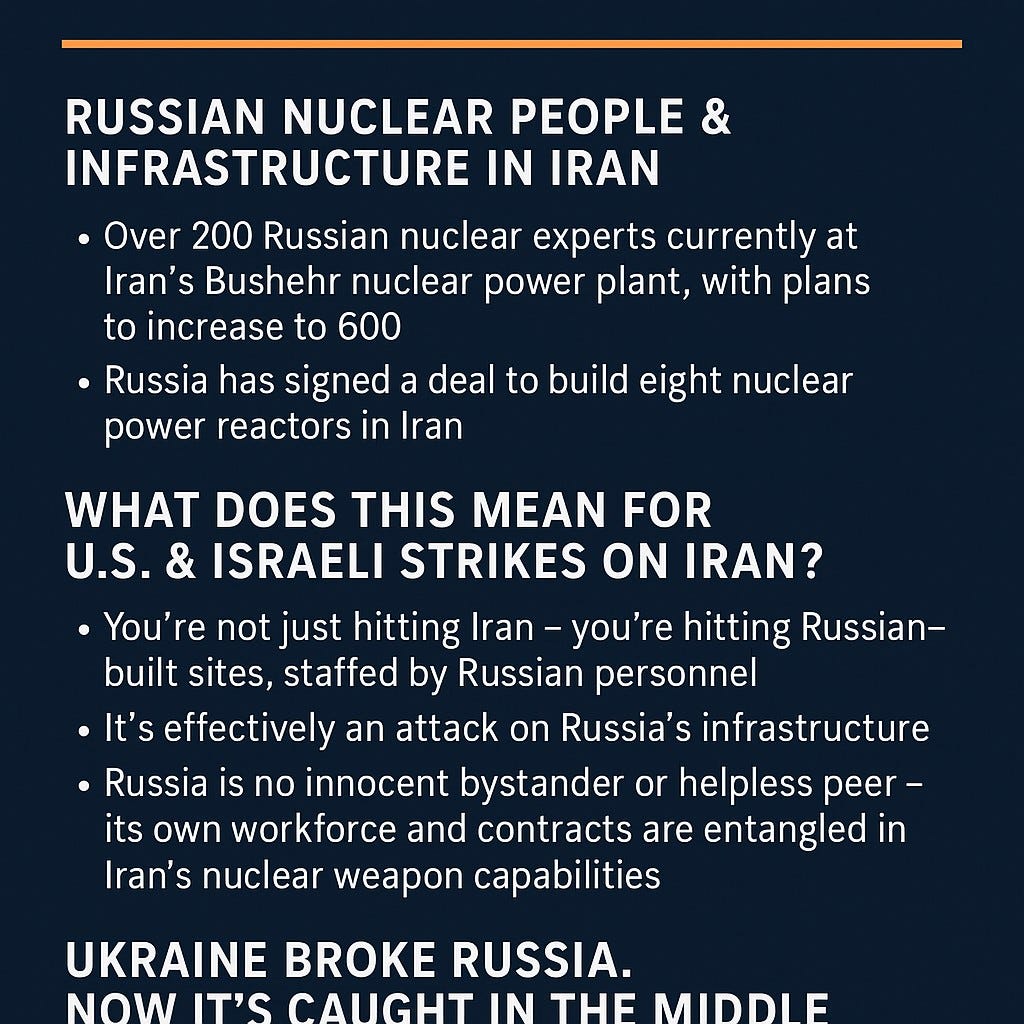When You Strike Iran You are Really Striking Russia !
Don't be fooled by Trump Administration smokescreen
Title: When You Strike Iran, Are You Really Striking Russia?
By Chris Windley
This isn't just an attack on Iran. It's an attack on a Russian nuclear program, in Iran, at a moment when Russia has already been strategically broken by Ukraine.
For years, Iran's nuclear infrastructure has carried the fingerprints of Russian engineering, Russian expertise, and Russian ambition. Bushehr—the only active civilian nuclear plant in Iran—was built, maintained, and operated in large part by Russian contractors. Now, Russia is building up to eight new nuclear reactors in Iran, with hundreds of Russian nuclear engineers currently stationed there. This is no small detail.
If the United States or Israel targets Iranian nuclear sites—either reactively or pre-emptively—they're not just striking Iran. They are, knowingly or not, attacking a Russian strategic footprint.
Russia’s Silent Spread: Proxy Power Through Infrastructure
Russia has lost its status as a global military superpower—thanks to Ukraine. It can no longer project conventional power effectively. What it does instead is rely on:
Proxy wars
Asymmetric influence
Infrastructure entrenchment
Nowhere is this more visible than in Iran. When Russia sends engineers instead of soldiers, it isn’t a gesture of peace—it’s a form of soft occupation. It gives Moscow deniability and Iran a technological edge.
And when those facilities are bombed, Russia can claim to be the aggrieved party without having taken a single overt military step.
From Donbas to Bushehr: The Arc of Russian Decline
Let’s connect the dots:
In Ukraine, Russia's once-feared military has been ground down, exposed, and humiliated.
In Syria, its air power has been reduced to token operations and isolated bases.
In Iran, it now tries to embed its relevance via contracts, technicians, and construction teams.
It is building nuclear plants because it cannot build empires anymore.
The Strategic Paradox
There’s a powerful irony in the current moment:
Ukraine has weakened Russia so significantly that it has nothing left to offer on the battlefield—so it offers engineers in a desert, instead of tanks in a forest.
Russia is now deeply entangled in Iran’s deterrence strategy, but too weak to defend it if it’s attacked. That’s not strength. That’s exposure.
If Israel or the U.S. strikes Bushehr or future reactor sites, the fallout won’t just be radioactive—it will be political. Moscow will scream sovereignty, but the world will see the truth: Russia outsourced its imperial ambitions to concrete and technicians.



